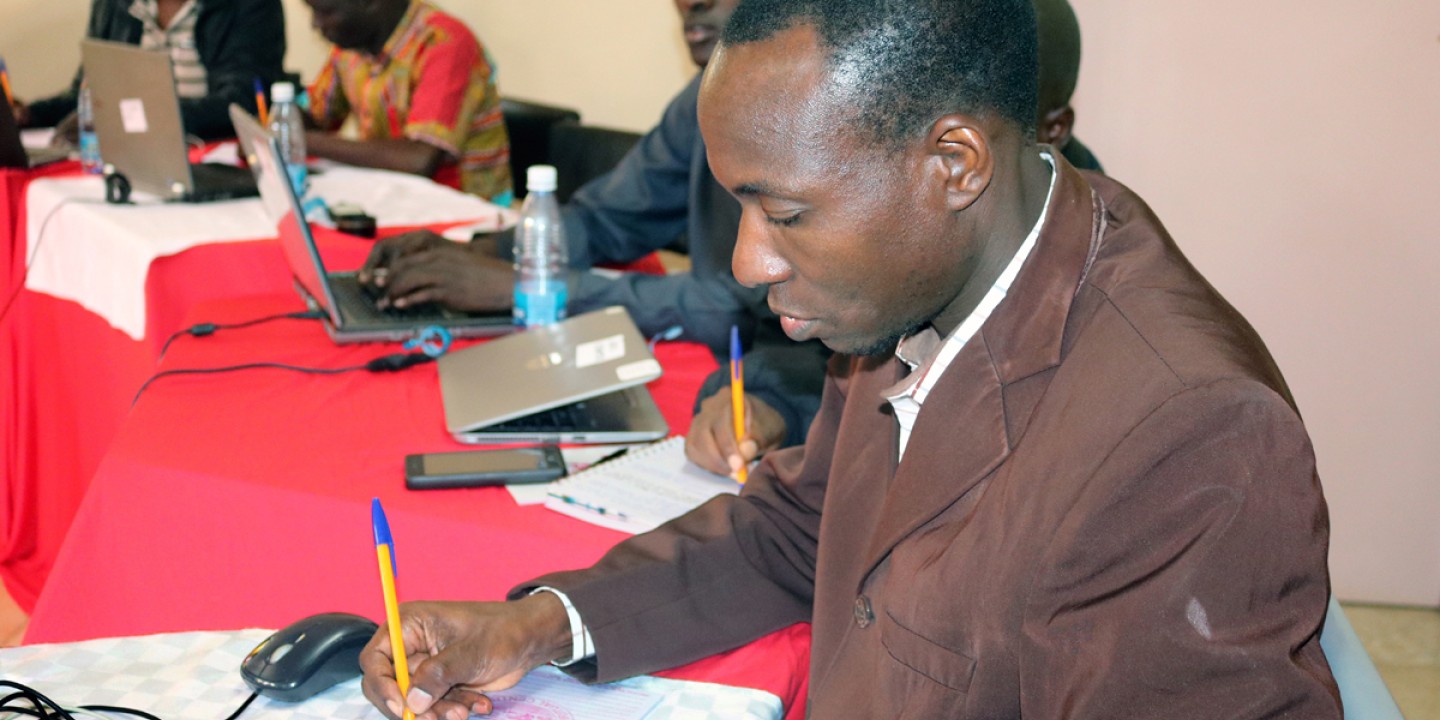UMC theological e-Academy is ‘game changer’ in Eastern Africa

United Methodist theological colleges in East Africa now can deliver education at a distance.
A new United Methodist e-Academy was launched in December in Kenya after a week of training for leaders of four United Methodist East African theological colleges.
The goal of the program, which was funded by Cliff College in Sheffield, England, and the Endowment Fund for Theological Education in the Central Conferences, is to equip people for ordained and lay leadership in rural communities.
Boniface Ghero, lecturer at Wesley College in Tanzania, said the program is a blended version of e-learning that is enabling a fully electronic relationship between lecturers and students.
“It’s a game changer for theological education in East Africa,” Ghero said. “What distance education has done is to certify lay people for congregational leadership in vast rural areas in East Africa that have suffered severe shortages of ordained clergy,” he said.
The academy, named Pamoja, allows students to follow lectures online, interact with teachers, submit assignments, and check grades, while lecturers can upload course materials, post assignments, and generate discussions using online blogs. Cliff College’s TheologyX online learning platform will host the Pamoja network.
Wilton T. Odongo, coordinator of Pamoja and dean of Wesleyan United Methodist Bible College in Nairobi, said the academy has great potential to expand participation and increase enrollment at United Methodist theological schools.
Gene Ramsey, a retired pastor from the Illinois Great Rivers Conference living in Uganda, said that the e-learning program has significantly resourced the leadership of the conference’s theological college to offer classes to those who aren’t able to study on campus.
“We can design courses specifically targeting the needs of our pastors—or even the lay leadership who works alongside them and often become our next generation of pastors—and offer them courses in Bible, liturgy, a United Methodist understanding of the sacraments, or Wesleyan theology as needed,” he said.
Ramsey said local church pastors are tentmakers who, in addition to caring for congregations, have to work outside the church to support their families. They have neither the financial resources nor the time to pursue a theological degree at a distant campus.
Mercy Rehema, a lecturer at Wesleyan United Methodist Bible College and an alumna of Africa University, a United Methodist–related institution, said the online teaching environment has changed the social dynamics of the class.
“It is now possible to design online learning to leverage the differences that exist between students, by intentionally creating diverse working groups within a course,” she said.
She singled out the e-learning program as an opportunity for voices that are seldom heard in the classroom—because of disability, temperament, or perceived marginalization—to be present online.
Rehema noted the need for scholarships for distance learners in East Africa and Africa as a whole. “Together, we can contribute toward theological education advancement for the church in East Africa.” —United Methodist News Service





